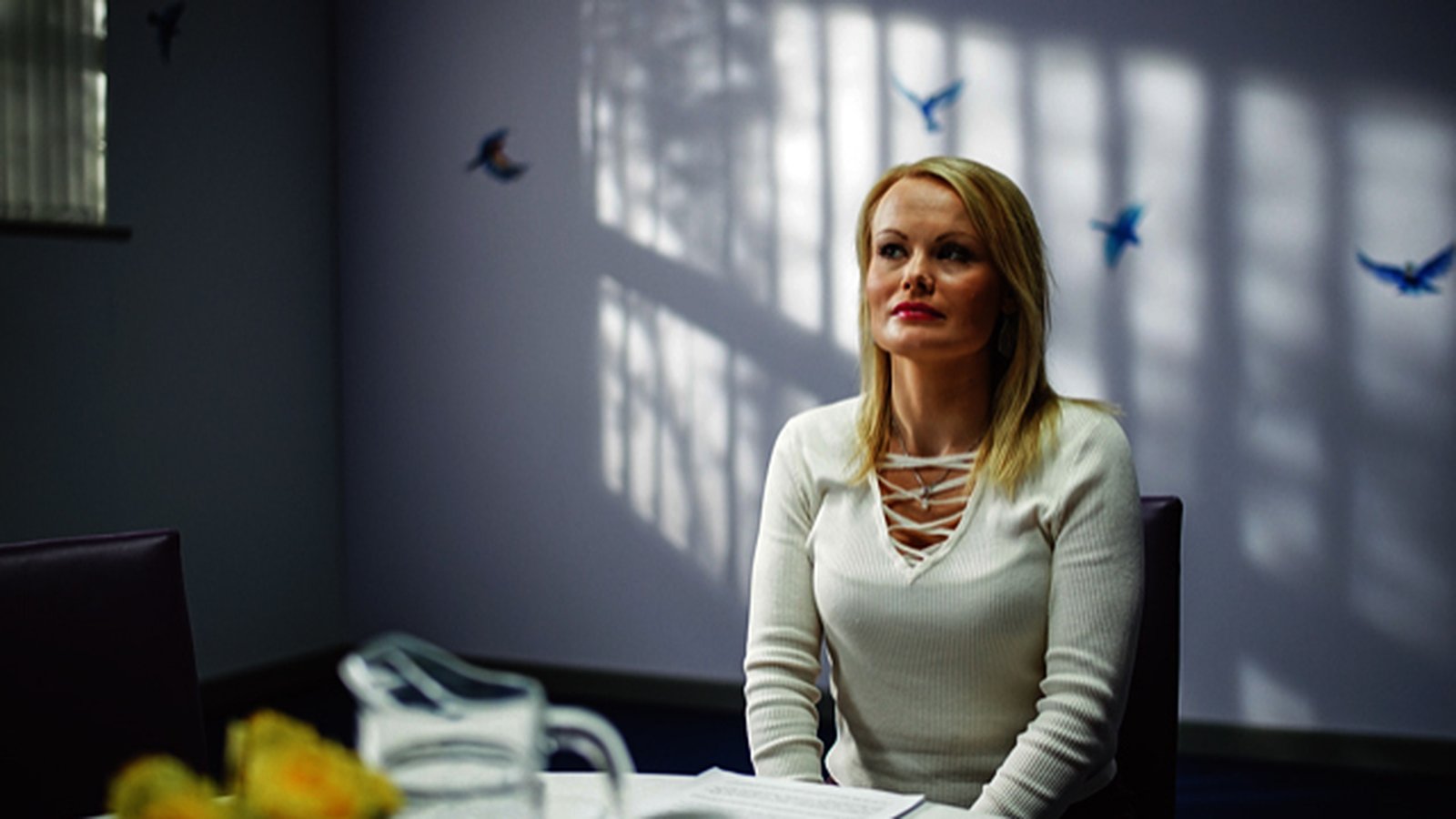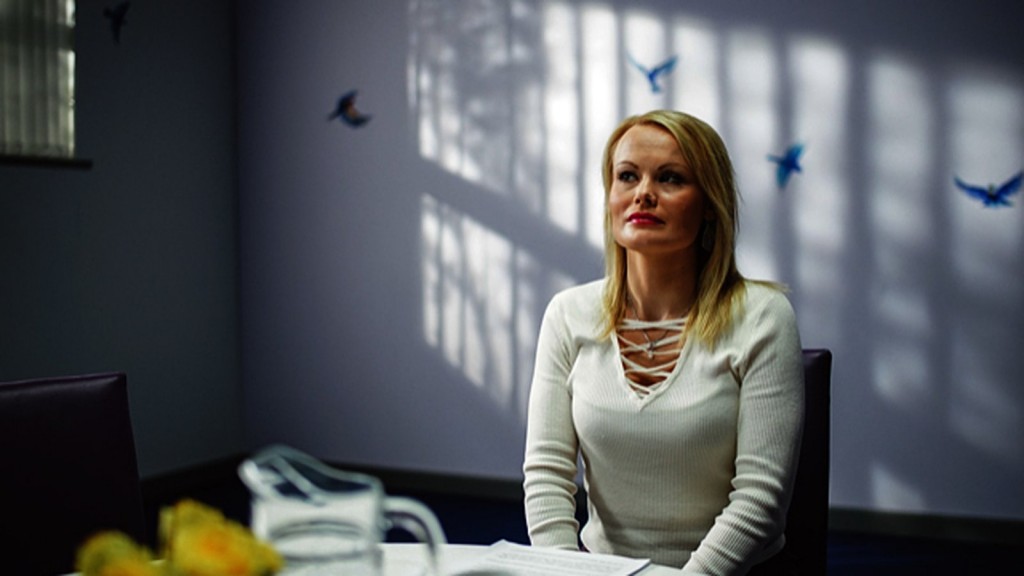An uncommon encounter conducted in the keys of grace and dignity, Irish drama The Meeting puts the mechanics of restorative justice on screen in the year’s most extraordinary blurring of fiction and reality.
While walking from the bus stop to her Dublin family home one summer night, 21 year-old Ailbhe Griffith is suddenly grabbed from behind and dragged into bushes. Her attacker, who got off the bus behind her, then subjects her to a horrific sexual assault, biting, punching, scratching and penetrating her. “Not so glamorous now”, he hisses. Two passers-by intervene and chase off the perpetrator, very likely saving Ailbhe’s life.
The man, named Martin, was caught and sentenced without the ordeal of a trial, and Ailbhe did her best to get on with her life, the effects of the violent night cascading through the years in the form of depression, disordered eating, self-punishment and a shattered trust for the strangers around her. Nine years later, after Martin was released into an anonymous life, Ailbhe, still frustrated and seeking answers, sought him out through the channels of restorative justice. After the back and forth of negotiated safeguards, the two met in a small room to face eachother, the first time they had exchanged words since the night of the attack.
In a marker of her commitment to the transparency and advocacy of the restorative justice model, Ailbhe plays herself in the recreation, joined by real-life supporter and psychotherapist Dr. Marie Keenan. Restorative justice is a conceptual approach towards criminal redress which encourages victim and perpetrator to meet for explanation, or apology, or simply for the chance to be heard. It is a healing strategy popular in many international legal contexts but underdeveloped here, and The Meeting is a rare opportunity to see, in what feels like real-time, the courage and emotional discipline it demands.
Writer and director Alan Gilsenan (2017’s Meetings with Ivor) transposes the real-life exchange between Ailbhe and Martin (played by Terry O’Neill) into an intense, elegant people-in-a-room drama. Opening with excerpts from Ailbhe’s original victim statement, the film communicates the horror of the attack without dramatisation, keeping the events of night proximate but distanced. As the two take it in turns to read statements, respond or interrupt (it’s always Martin doing the interrupting), Gilsenan strips away emotional superficialities.
Built around a polite, tightly controlled agenda, the exchange proceeds with the anaemic managerial aesthetic of a council Treasury sub-committee, the hazy, drifting photography highlighting bourbon biscuits and faux-cherry interior touches. There are no tears or outbursts, and a total absence of self-righteousness, in Ailbhe’s rehearsed composure and Martin’s plain-speaking, distracted, slightly absent demeanour. Gilsenan understands that there’s nothing more dramatic than two damaged people being radically honest with eachother.
And it’s gripping, moving material, as Ailbhe recounts the details of the hurt done to her, building to the big question, the obvious question: why did he do it? And his answer is totally banal and predictable. He doesn’t quite know: the rage sprang from somewhere buried, somewhere almost outside himself. Even while keeping a firm moral ledger, The Meeting challenges us to see Martin as a person too: his disbelief at what he did, his history of exclusion and humiliation, the sense of being denied or cheated out of something that runs through the self-narratives of men who rape.
The humanity accorded to Martin challenges easy binaries around rape, intention and education, particularly the emphasis put on ‘teaching boys not to rape’ as a counter to victim-blaming shouldas and couldas. Martin isn’t the kind of person who would assault someone, until he is — and the violence seems to erupt from a festering, malignant internal place, a slowly rotted soul. That’s the real horror — the meaningless of it, the details that set him off, the way a drunken burst of malevolence can demarcate two lives so utterly.
Watching The Meeting, you get the sense of having been invited in to witness something rare and exceedingly difficult. Totally unsensationalist but all the more tense for it. Conor Smyth
The Meeting is showing at Queen’s Film Theatre until Thurs 22nd and at the Omniplex Limerick on 22nd. Screenings can be arranged via the website.






